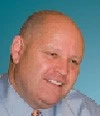
 Henry DeLozier | Olbers’ Paradox, named after German astronomer Heinrich Olbers, questions why the night sky is dark, despite the enormous number of stars, and how something that seems so infinite can be so definite. The golf business holds similar, although less cosmic, riddles. The question for many is where to go for answers. Here are several questions for those who manage clubs and golf facilities, along with some information sources. Q: How can I identify and recruit more golfers? Top-performing clubs conduct regular reviews of their immediate market areas and their golfers to know the socio-economic profiles and psychographic characteristics of current and prospective members. The U.S. Census sorts people by age, gender, household income, educational achievement and family composition (as in how many children in the household). Census data and state or local property tax rolls estimate property values. The National Golf Foundation (NGF) has developed a golfer census that identifies golfers and helps facility managers increase participation and frequency. Q: What attributes make my club “sticky” for golfers? Here are three reliable tactics that will make your golfers: 1. Use customer relationship management software to create profiles that include pictures so staff can quickly recognize members and prospects. Then start developing a relationship. There are numerous reliable resources for relationship management, including clubessential.com, membersfirst.com, Jonas.com and pipelineinc.com. 2. Get the golf course in the best shape possible, allowing for budget limitations and other reasonable local considerations. According to our research at Global Golf Advisors (globalgolfadvisors.com), courses in top condition post revenues 15 to 17 percent higher than their competitors. 3. Find out what is most important to your most important golfers. Reliable and consistent putting surfaces? Reasonable pace of play? Fun events where they meet others like them? Your best customers are eager to tell you what they want. Jon Last, who runs the Sports and Leisure Research Group (sportsandleisureresearch.com), is an excellent resource for consumer attitudes and trends. Q: What do women want? Women golfers significantly influence your results. Women represent slightly more than 50 percent of the U.S and Canadian populations and control trillions in buying power. We know that women want to be respected and appreciated consumers. They want to play golf for its fun and social attributes. But a relatively small segment wants to compete in golf. They view golf — and clubs — as platforms for socialization. So keep golf fun and include everyone. Martha Barletta’s book “Marketing to Women” and her trendsight.com website offer great insight into today’s women consumers. Q: How do I know what to forecast for my business next year? 1. Weather influences your business as much or more than any other factor. Through CMAA, managers can access up-to-the minute weather status from WeatherBug (earthnetworks.com). NGF provides guidance through WeatherTrends International (wxtrends.com). Knowing whether the spring of 2015 will be warm and dry or cool and wet means a more accurate budget and cash flow forecast for your facility. Get it right! 2. Inflation is trending upward. According to the Federal Reserve Banks in Cleveland and Dallas, the median trend for Consumer Price Index (CPI) has risen steadily during the first half of 2014 to an annualized rate of 4.2 percent. Monitor inflation trends for your budget planning at usinflation.org/us. Budgets for golf courses are likely to increase during the remainder of 2014 and into 2015. In addition to the volatile costs of oil-related goods, trends in food stuffs for proteins, grains and coffee are up. Plan for increased costs. 3. Labor costs will increase. Increases in minimum wage and the desire to catch up on deferred wage increases at many clubs converge to indicate a trend for increased payroll costs. While not as incomprehensible as the night sky, the answers to some of golf’s most challenging issues are within reach, if you know where to look.
Henry DeLozier is a principal in the Global Golf Advisors consultancy. DeLozier joined Global Golf Advisors in 2008 after nine years as the vice president of golf for Pulte Homes. He is a past president of the National Golf Course Owners Association’s board of directors and serves on the PGA of America’s Employers Advisory Council. |

Explore the August 2014 Issue
Check out more from this issue and find your next story to read.
Latest from Golf Course Industry
- Editor’s notebook: Green Start Academy 2024
- USGA focuses on inclusion, sustainability in 2024
- Greens with Envy 65: Carolina on our mind
- Five Iron Golf expands into Minnesota
- Global sports group 54 invests in Turfgrass
- Hawaii's Mauna Kea Golf Course announces reopening
- Georgia GCSA honors superintendent of the year
- Reel Turf Techs: Alex Tessman





